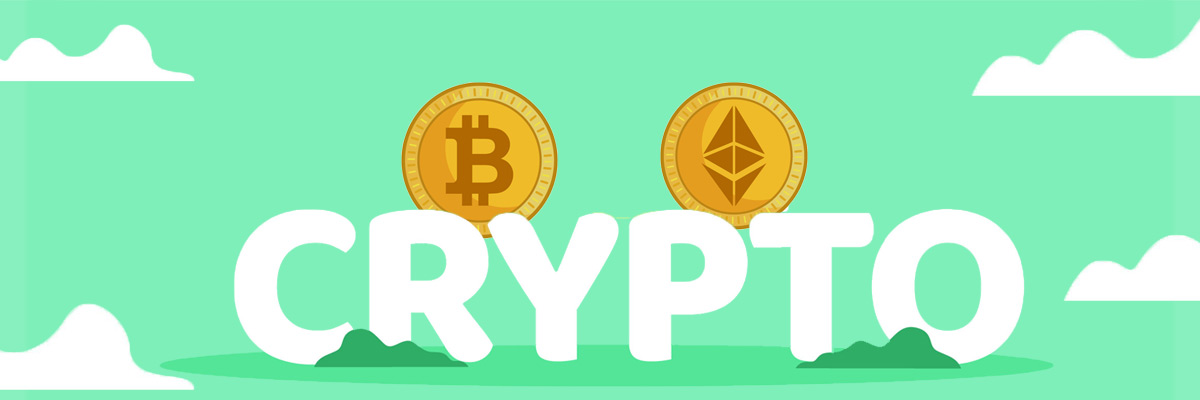So, you're thinking about building a diet and nutrition app but are unsure how much it will cost.
Well, you're in the right place! As health and fitness continue to trend upward, more and more people are turning to mobile apps to help them track their meals, stay on top of nutrition, and achieve their fitness goals.
Whether you're curious about the development process or ready to launch your app idea, I'll walk you through everything you need to know, from essential features to the final price tag.
The Rising Demand for Diet & Fitness Apps: A Booming Global Market
Diet and nutrition apps have seen incredible growth, with over 200 million downloads globally, a clear indication of the demand for health-oriented mobile solutions.
As more people prioritize wellness and look for digital tools to help manage their health, these apps are becoming indispensable.
In fact, the global fitness app market is projected to reach USD 25.9 billion by 2033, up from USD 4.9 billion in 2023, driven by a compound annual growth rate (CAGR) of 18% during the forecast period from 2024 to 2033.
This impressive growth underscores the massive opportunities for businesses and entrepreneurs looking to tap into this thriving market.
How a Diet App is Helpful for End Users?
First off, why would users even want to download a diet and nutrition application?
Simply put, these apps help people take control of their health and make smarter food choices.
Here’s how:
- Personalized Diet Plans: Users get tailored meal plans based on their goals, such as losing weight, building muscle, or maintaining a balanced diet.
- Meal Tracking: They can easily log what they eat, which helps them stay on track and see if they’re meeting their daily goals.
- Calorie Counting: A good app will automatically calculate the calories in meals, helping users manage their intake.
- Nutrition Tracking: Users can track the amount of protein, fats, carbs, and other nutrients they consume.
- Integration with Wearables: Many apps sync with smartwatches and fitness trackers to give users a complete picture of their health.
These features make a diet app more than just a meal tracker, it becomes a health partner, guiding users toward better lifestyle choices. But delivering that kind of experience takes some work.
Critical Features You Need in a Diet and Nutrition App
As you can see, a diet planner mobile app can be quite useful for an end-user and an amazing opportunity for any startup entrepreneur. But before you move ahead with health and fitness app development, you should clearly know the features your app will offer.
Here are some useful features that every health and wellness mobile application must have:
1. Dietary Suggestions
The main goal of a diet and nutrition mobile application is to help individuals eat healthily and improve their eating habits.
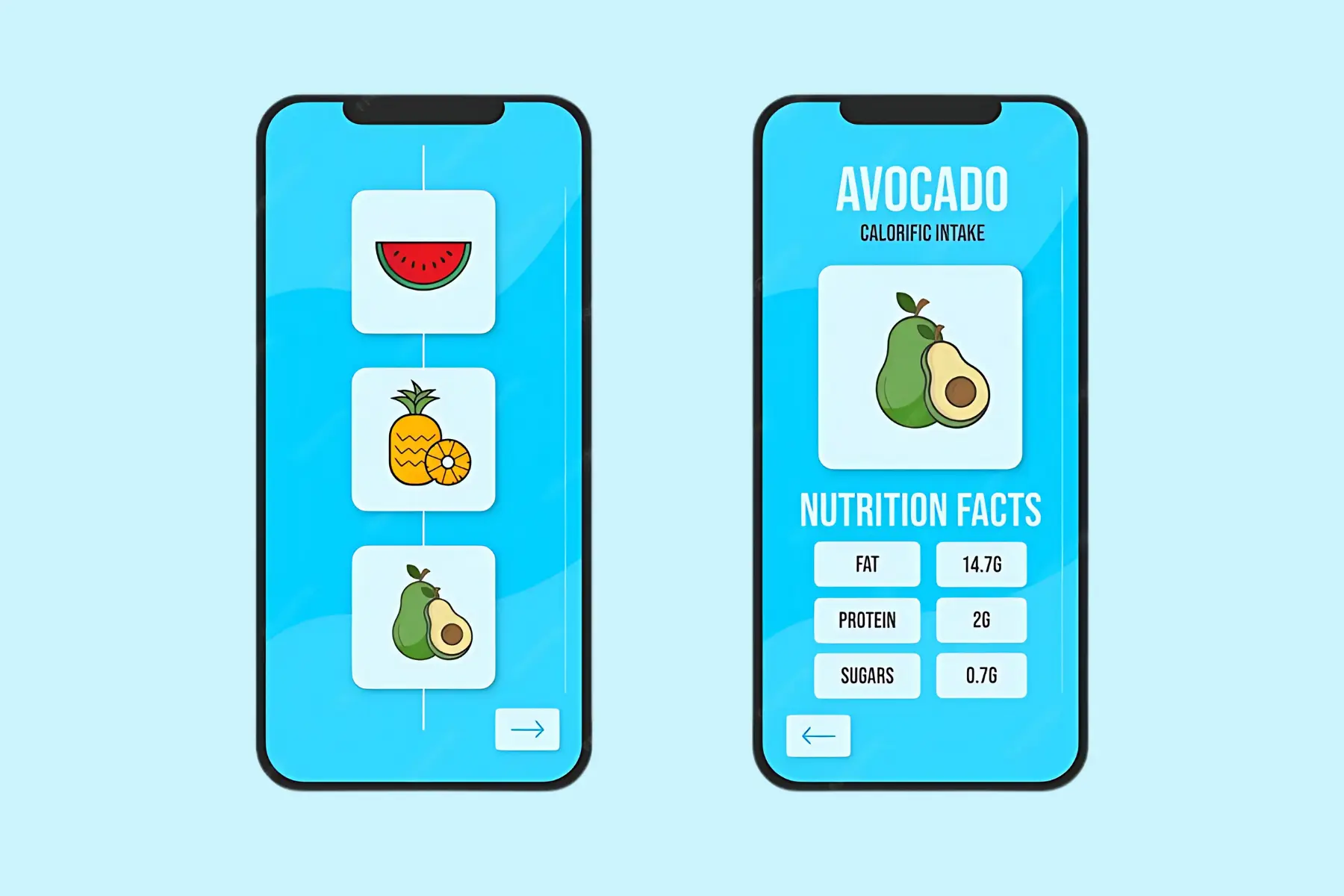
So, your app should have an interactive feature that suggests what a user should consume daily based on his body weight, meal preferences, and healthy meal plans. This will hook users to your app.
2. Physical Activity & Food Intake Logger
Your app should offer dietary suggestions and features for recording a person’s daily physical activity and calorie intake. One way to do this is to create a food and activity log within your mobile app.
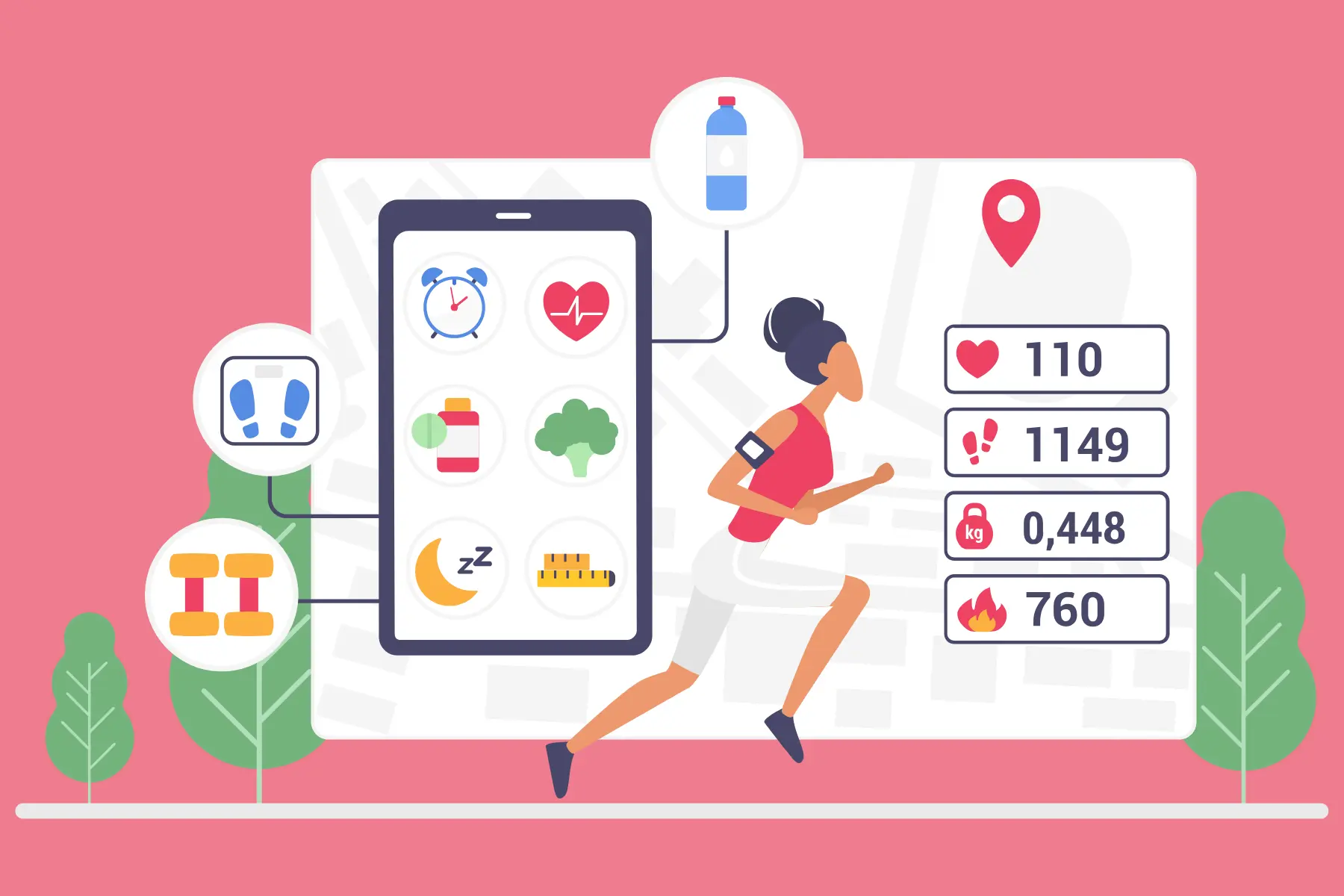
A database can relate every activity and food item with its calorific value, giving users an idea of how much they should walk and eat to achieve their fitness goals.
3. Connectivity to Wearable Devices
Your mobile app should also be able to connect with a wearable device like Fitbit, Apple Watch, or Android Wear. These wearable devices track a user's health, fitness, and physical activity.
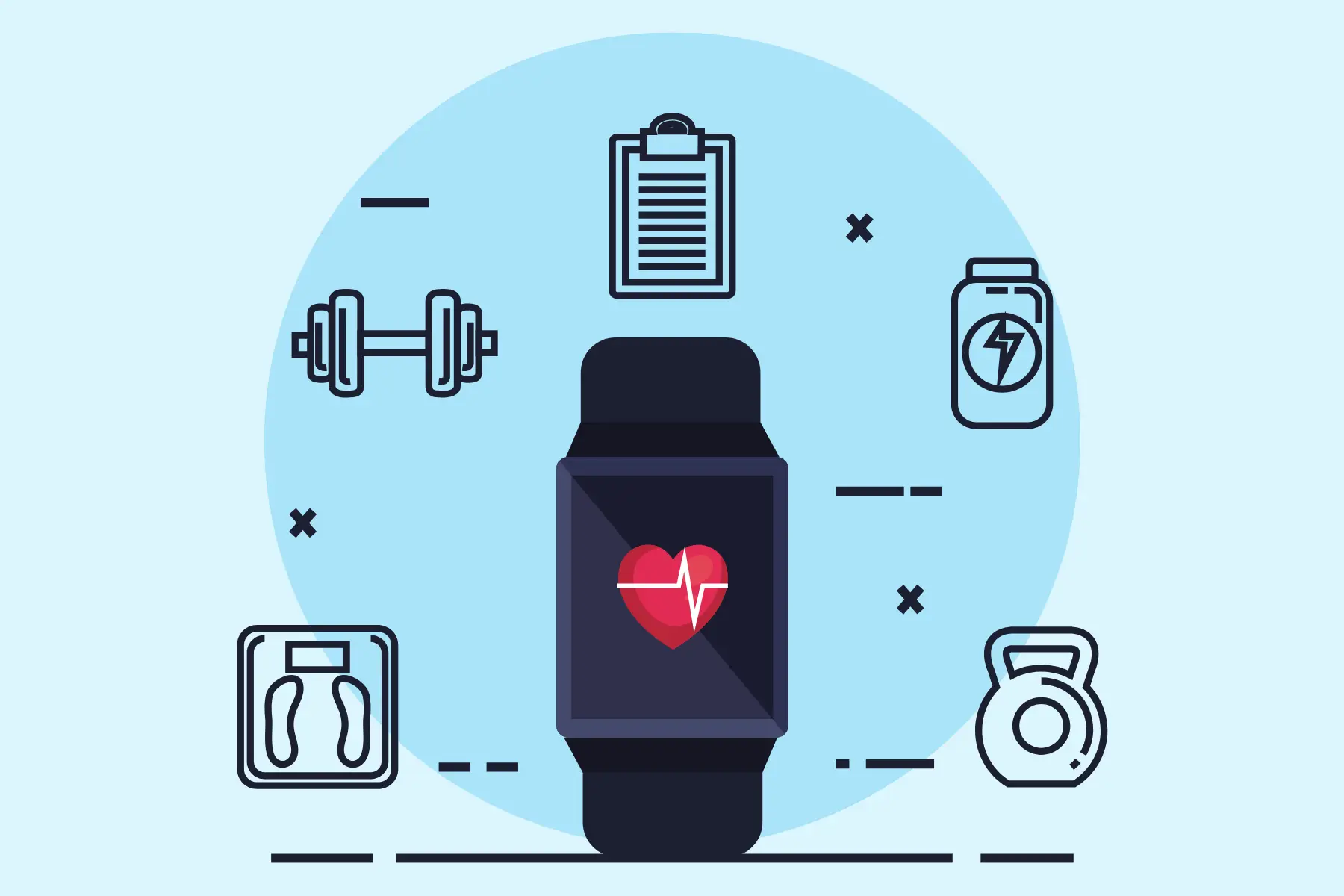
By having a connectivity feature that links your app with these devices, you can easily create a detailed daily chart of physical activities using the sensors of a smartwatch.
4. Push Notifications
Your app should also be capable of informing users about various things through push notifications. This feature not only improves engagement and retention rates but also provides critical information to users when it is most needed.
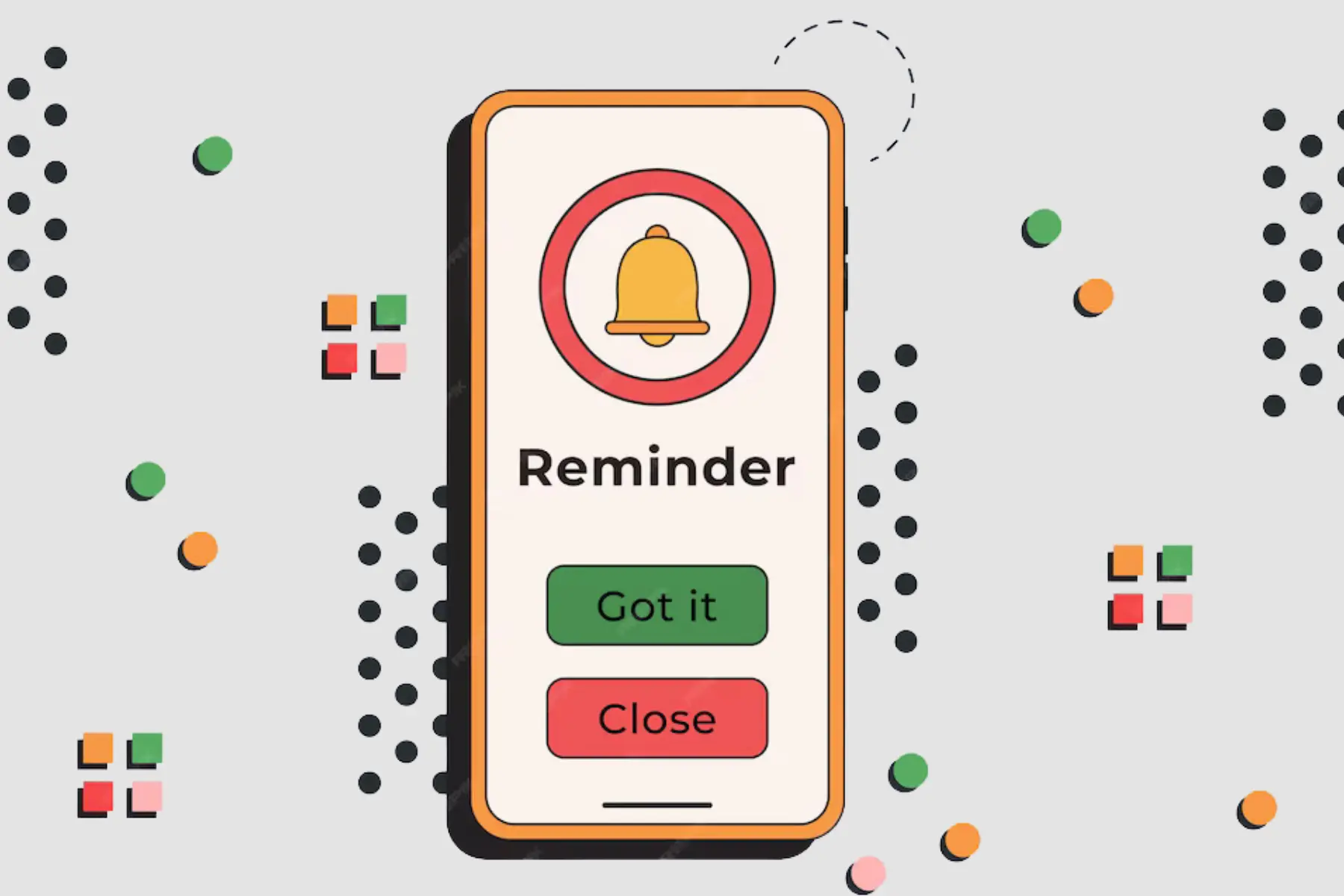
5. Daily Activity/Diet Analyzer
Just like an activity tracker, a diet analyzer within your diet planner mobile app would give users deep insights into how well they are doing with their goals and how soon they will achieve desired results.
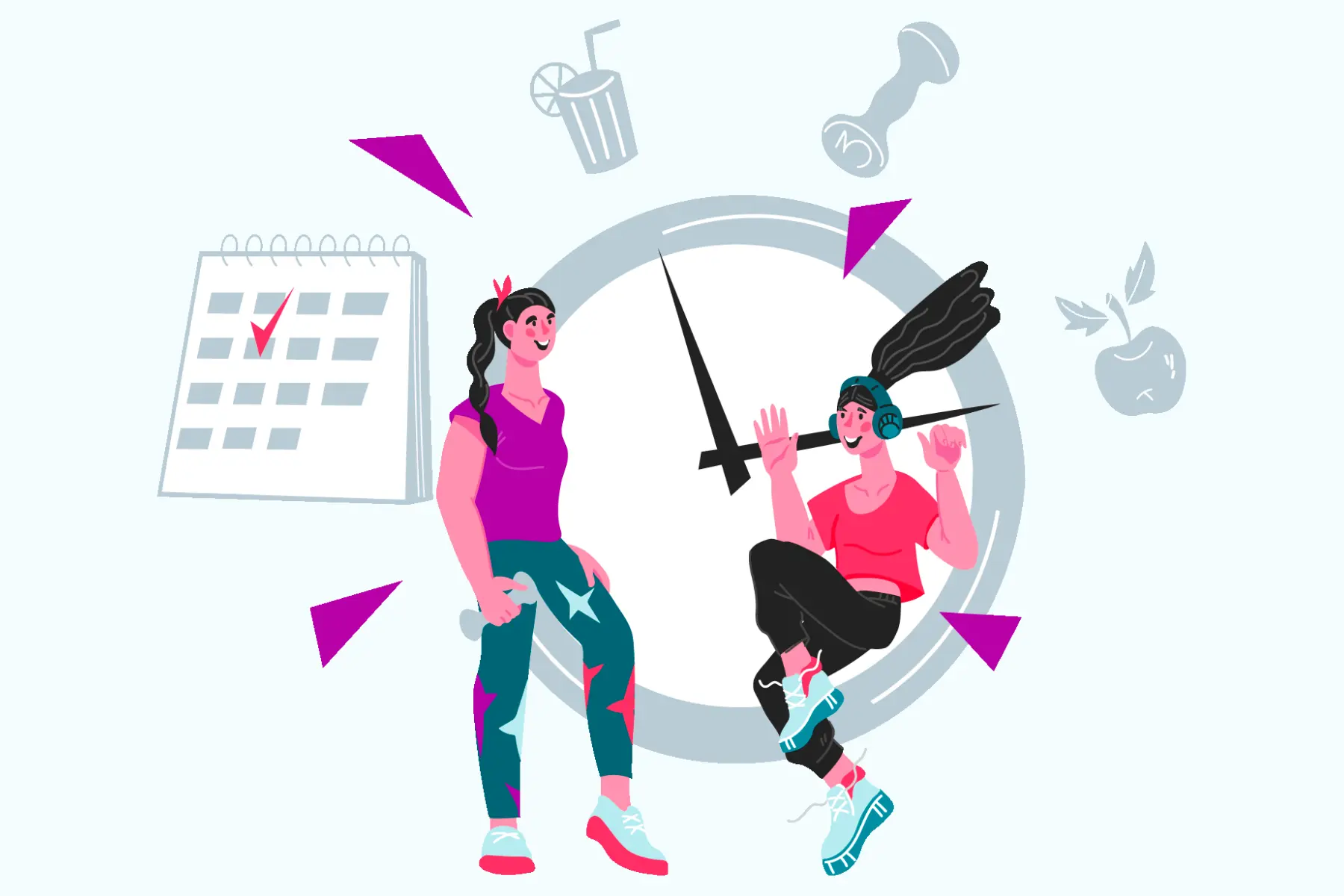
Your analyzer should provide valuable data in an easily understandable format so users can properly utilize the feature.
6. Live Chat with Dieticians
This is an excellent feature that can potentially increase your mobile app manifolds' engagement rates and interactivity. You can include a live chat feature in your diet and nutrition mobile app that connects users to real dieticians.

Dieticians can provide valuable tips and diet plans to help users on their fitness journeys. You can add this feature as a subscription for users, allowing you to monetize from the add-on facility you intend to give to your users.

7. Barcode/QR Code Scanner
Adding a barcode scanner that helps users find out the calorific value of every product they buy inside the store is a great way to keep them motivated. The feature allows users to scan the barcode of food products and get detailed information on how it can help (or not) them achieve their fitness goals.
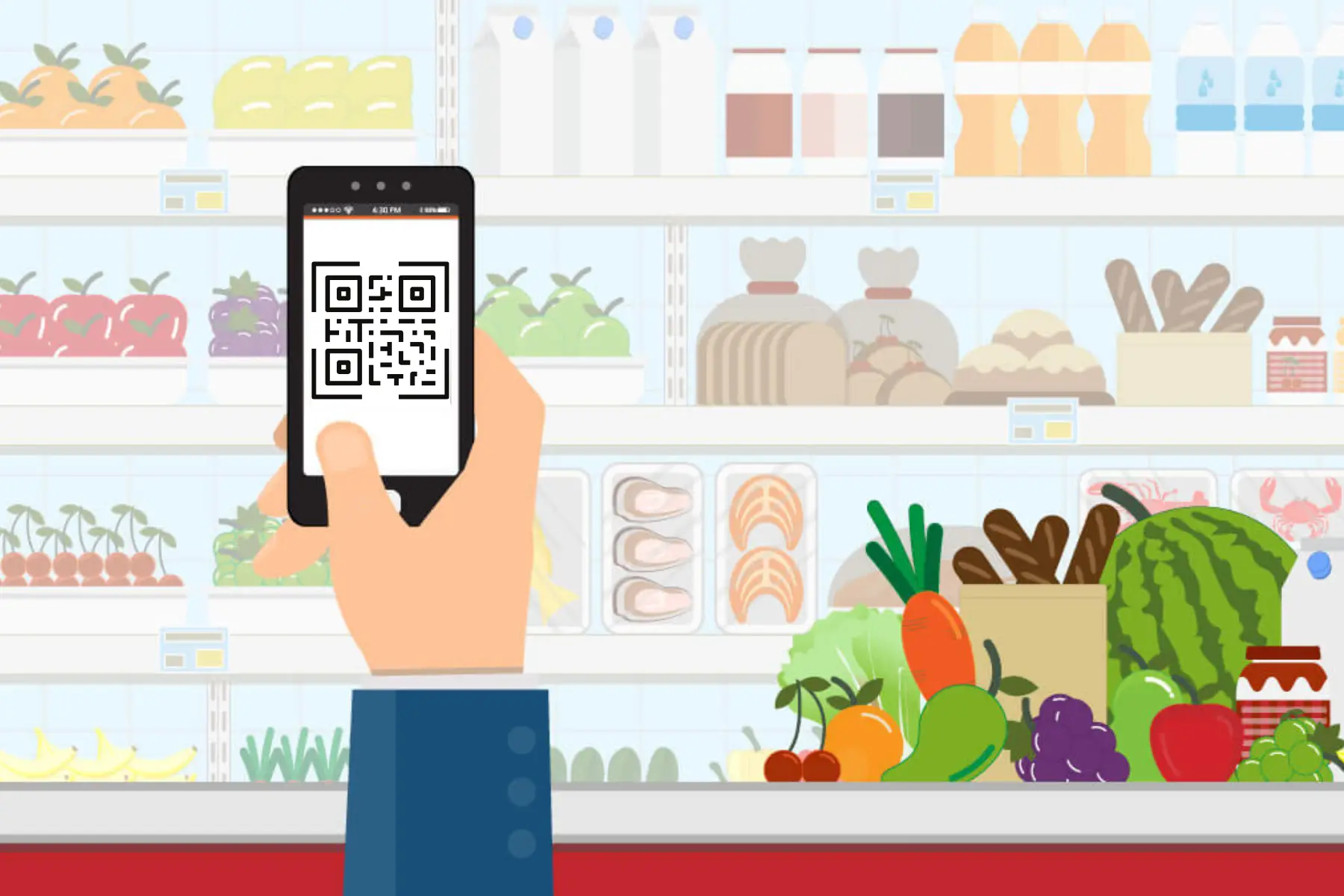
8. Social Sharing Features
Social media is a great motivator and influencer. Adding a social sharing feature in your mobile app can make users commit to their goals. Users can share their goals, daily progress, and diet plans with friends over social media.
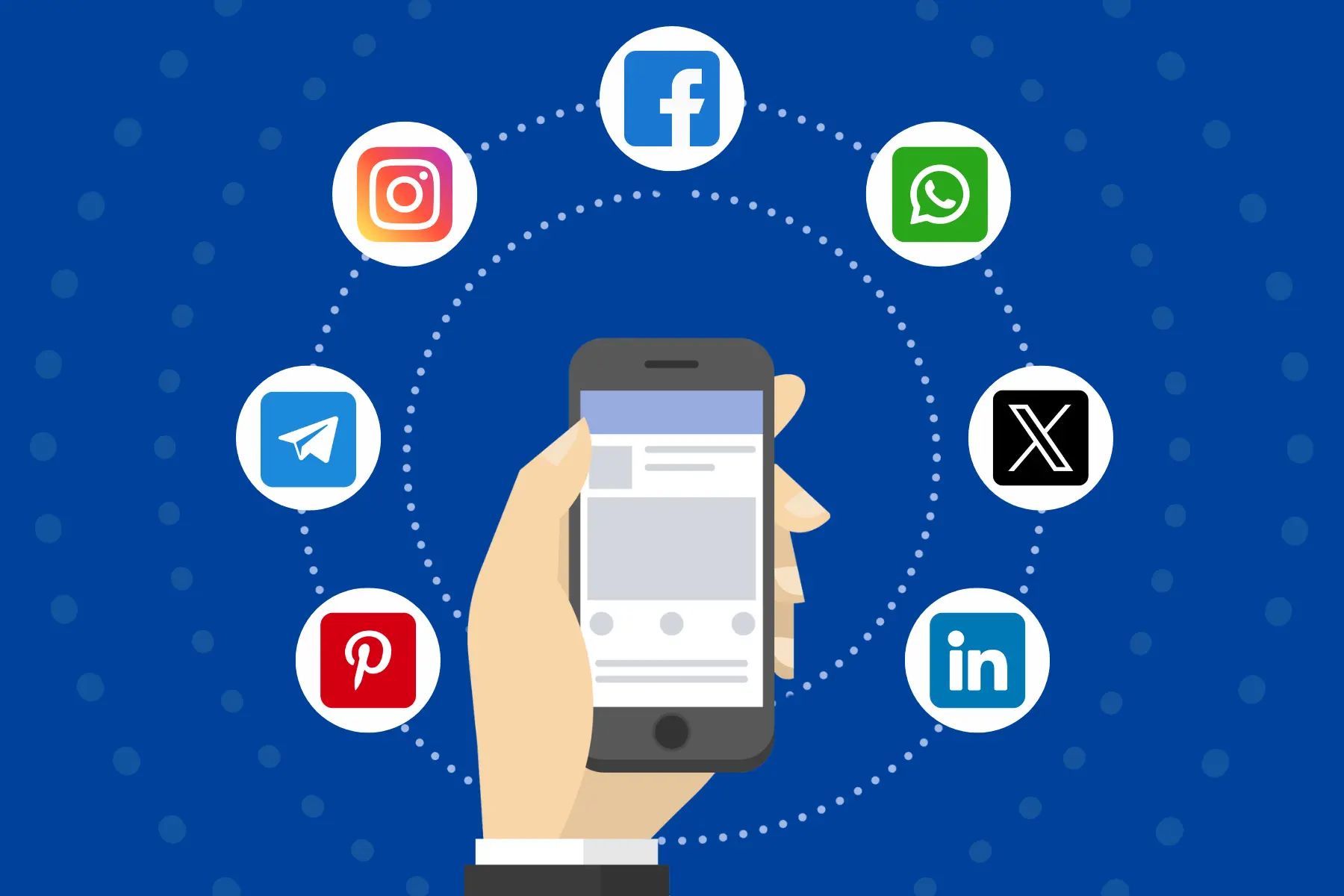
Other Important Features to Focus on While Development
- Intuitive UI
- Past Diet History
- Integration with Google Fit/ Apple HealthKit
- Healthy Shopping Assistance
- User Feedback
- CMS
Process of Developing a Diet and Nutrition App
Building a diet and nutrition application isn’t just about getting it up and running, it’s about creating a product that resonates with users and offers them real, lasting value.
Planning app involves thorough research and strategy development. We identify our target audience, understand their needs, and outline the key app features to create a roadmap that guides the entire development process.
If you’re considering developing one, I’ll explain the entire process step by step. By the end, you’ll understand how a successful diet and nutrition application is made.
1. Market Research & Planning
The foundation of any successful app starts with research.
We can’t just dive in without knowing the market landscape. This step involves understanding the audience's needs and finding our place in a competitive field.
Identifying the target audience: Are we building an app for general health-conscious individuals or catering to a niche audience, like athletes, people on specific diets (keto, vegan), or individuals with medical needs like diabetes management?
Competitor analysis: We’ll examine popular apps like MyFitnessPal, Lose It!, and Lifesum. What features do they offer? Where do they fall short?
This helps us find opportunities to differentiate.
User pain points: We’ll investigate what frustrates users about existing apps. Are they too complicated, or do they lack features they want, like personalized diet plans or simple meal tracking?
This will guide us on how to make a more user-friendly app.
Defining goals and objectives: Once we understand the market clearly, we’ll outline our app’s primary goals. Will it focus on meal logging, community building, personalized diet advice, or integrations with wearables and fitness apps?
We must create a strong plan and development roadmap that defines features, timelines, and the app’s unique selling proposition (USP). This phase is crucial in guiding the entire development process.
2. Wireframing & Prototyping
Now that we know what we want to achieve, we move on to wireframing and prototyping.
This step helps us visualize the app’s layout and user journey.
Wireframing: Think of wireframes as a blueprint. We’re sketching out the structure of the app, screen by screen. We’ll decide where every button, menu, and feature goes.
For example, how will users log their meals? How will they view their daily nutrient intake?
Creating a user flow: We map how users will move through the app. For instance, can they quickly switch from setting diet goals to tracking their food, or will it feel confusing?
The smoother the user flow, the more users will likely stick with the app.
Prototyping: After wireframing, we’ll create a clickable prototype, a non-functional app version miming the user experience.
This helps us test the design and user interactions early on. Is it intuitive to navigate? Do users know where to go next without much guidance?
Prototyping allows us to gather feedback and make adjustments before development begins.
This stage helps us ensure that the design is aligned with our goals and user needs, saving time and effort in later stages of development.
3. UI/UX Design
Once the blueprint is set, we design the app to life. This phase focuses on both the app's appearance (UI) and usability (UX).
User Interface (UI): This is the app’s visual look color schemes, fonts, buttons, and overall aesthetic. We want it to be visually appealing while ensuring it aligns with the audience.
A clean, minimalist design works well for a health app because it makes the interface easy to navigate.
User Experience (UX): This involves designing the app's flow to ensure it’s user-friendly. For example, logging meals or viewing calorie counts should feel effortless.
If users struggle to find essential features or feel overwhelmed, they’ll likely abandon the app.
Personalization features: Personalization is key. We’ll design the app to adapt to individual users offering personalized diet plans based on their preferences, health goals, or medical conditions.
Features like progress tracking, notifications for meal reminders, or even AI-generated meal suggestions can enhance the user experience.
Ultimately, we’ll have a beautiful, intuitive, easy-to-use app encouraging users to stick with their health goals.

4. App Development
With the designs locked in, we move into actual mobile app development.
This stage involves turning our ideas into a fully functional product. The software development can be broken into two main components:
Front-End Development: This is the part of the app that users interact with directly. We’re coding the buttons, screens, and visuals based on our design.
We’ll ensure it looks and behaves as intended on different devices (smartphones, tablets).
Back-End Development: The back-end is where all the behind-the-scenes work happens. It handles data storage, user authentication, integrations with third-party APIs (like food databases or wearable fitness trackers), and other complex processes.
For example, if users input their meals, the back end will calculate their nutritional intake and store that data.
Additionally, this is where we decide on key integrations.
Does the app need to sync with fitness wearables like Fitbit or Apple Watch? Will we pull nutritional data from external databases like USDA or YAZIO?
These integrations are handled at the back-end stage.
Throughout development, we’ll make sure the app is scalable and secure, especially when it comes to sensitive data like personal health information.
5. Testing & Quality Assurance
Before releasing the app to the public, we must ensure everything works perfectly. This is where rigorous testing comes in. We’ll go through several types of tests:
Functional Testing: This involves ensuring that every feature works as it should. From logging meals to tracking weight goals, every function is tested.
User Testing: We let real users try out the app. This helps us uncover any usability issues are there any confusing features? Does the app feel smooth, or is it clunky to navigate?
Cross-Platform Testing: Our app needs to work seamlessly on both iOS and Android, so we’ll test it on different phones and tablets to ensure no platform-specific issues.
Performance Testing: How does the app perform simultaneously when many users are on it? We’ll stress-test the app to ensure it doesn’t slow down or crash under high traffic.
Testing ensures the app is bug-free, intuitive, and performs well across various devices, preparing it for launch.
6. Launch & Deployment
Once testing is complete and we’ve refined the app, it’s time to launch! But deployment isn’t just about pushing the app live; it requires careful coordination.
App Store Submission: We’ll submit the app to the Apple App Store and Google Play Store. Each platform has its review process, so we’ll ensure the app complies with their guidelines.
Marketing strategy: An excellent app launch also involves marketing. We’ll build buzz around the app through pre-launch campaigns, influencer partnerships, and social media promotions.
A strong launch strategy ensures the app gets the attention it deserves and attracts users from day one.
7. Maintenance & Updates
Even after the app is live, the journey doesn’t stop. Continuous maintenance is necessary to ensure long-term success.
Monitoring and updates: We’ll monitor user feedback, fix any bugs that arise, and roll out updates to improve performance and add new features.
This could include adding additional diets, syncing with more fitness trackers, or expanding community features based on user demand.
Scaling: As the app grows in popularity, we may need to scale up its infrastructure to handle more users. Ensuring the app can handle increased traffic smoothly is key to maintaining user satisfaction.
Improvements and updates are critical to keeping the app relevant, useful, and competitive.
By following this detailed process, we’ll ensure that our diet and nutrition application is functional, user-friendly, and stands out in a crowded market.
How Much will the Nutrition App Development Cost?
Now for the million-dollar (or maybe just a thousand-dollar) question—how much does it cost to develop a wellness app?
The cost of developing varies depending on the complexity of the app and the features you want to include.
Here’s a rough breakdown:
Basic App: The cost to make a simple app with core features like meal tracking, calorie counting, and goal setting is roughly between $25,000 and $50,000.
Mid-range App: The cost to develop an app with advanced features like integration with wearables or a recipe database can climb from $50,000 to $100,000.
High-end App: For a fully loaded app with AI-based food recognition, community features, and premium subscriptions, costs can exceed $100,000.
Cost of Engaging an Expert Team
The cost of diet and nutrition planner app development also depends on the complexity of your concept and the place you wish to hire mobile app developers.
You can either build an in-house team or engage an offshore diet planner app development team, which is generally cost-effective for startups.
The actual costs of building the app can be ascertained by connecting with a professional diet planner app development company.
To get your app off the ground, you’ll need a team of experts. Here's a breakdown of typical hourly rates for each role:
- Project Manager: $50–$100/hour
- UX/UI Designer: $30–$75/hour
- iOS/Android Developer: $50–$150/hour
- Back-end Developer: $60–$120/hour
- QA Tester: $30–$50/hour
Hiring a team in countries like the U.S. or Western Europe will cost more, while outsourcing to regions like Eastern Europe or India can help reduce expenses without compromising on quality.
Wrapping Up
Creating a nutrition app in the healthcare domain is not an easy task. You need an expert team having knowledge and experience of building and deploying a full-scale healthcare app. If you don’t wish to waste your valuable resources and money, you should only engage a professional team with experience of working on such apps.
At Web Optimization, we have been helping healthcare startups build stunning apps for years. Get in touch with our expert nutrition app developer to discover the potential of a diet and nutrition healthcare app and kickstart your entrepreneurial journey, today.


